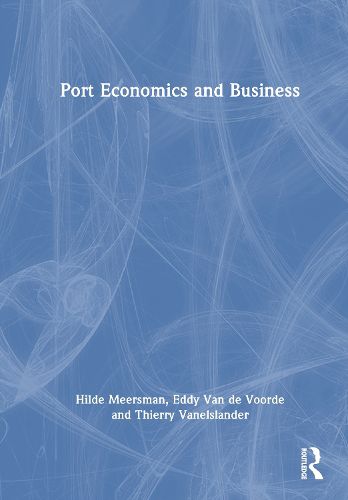Readings Newsletter
Become a Readings Member to make your shopping experience even easier.
Sign in or sign up for free!
You’re not far away from qualifying for FREE standard shipping within Australia
You’ve qualified for FREE standard shipping within Australia
The cart is loading…






There is growing interest in the port economy in all its facets from the business world, political decision-making and scientific research. In a constantly evolving port environment, pertinent questions arise every day, concerning aspects of financing infrastructure and operations, competitiveness, productivity and horizontal and/or vertical cooperation. All actors involved want to know the economic consequences of decisions that are made, both in terms of commercial companies located within the port perimeter and in terms of the port authority or manager and the government. Port Economics and Business therefore attempts to fill this important gap.
All important aspects of port activities are analysed in an economic manner. The economic decisions of providers and users of port services are studied. All actors who use the port infrastructure in one way or another are explicitly discussed. As far as freight traffic is concerned, this involves shipping companies, transshipment and storage companies, land transport and all possible suppliers and service providers. For passenger traffic, in a similar way, this concerns ferry and cruise lines, terminal operators, land operators and all possible suppliers. The book provides the reader with tools to solve port-related problems independently in the next phase. Emphasising economic aspects and decision-making, Port Economics and Business is a vital resource for students and researchers in port economics and management as well as professional port managers.
$9.00 standard shipping within Australia
FREE standard shipping within Australia for orders over $100.00
Express & International shipping calculated at checkout
Stock availability can be subject to change without notice. We recommend calling the shop or contacting our online team to check availability of low stock items. Please see our Shopping Online page for more details.
There is growing interest in the port economy in all its facets from the business world, political decision-making and scientific research. In a constantly evolving port environment, pertinent questions arise every day, concerning aspects of financing infrastructure and operations, competitiveness, productivity and horizontal and/or vertical cooperation. All actors involved want to know the economic consequences of decisions that are made, both in terms of commercial companies located within the port perimeter and in terms of the port authority or manager and the government. Port Economics and Business therefore attempts to fill this important gap.
All important aspects of port activities are analysed in an economic manner. The economic decisions of providers and users of port services are studied. All actors who use the port infrastructure in one way or another are explicitly discussed. As far as freight traffic is concerned, this involves shipping companies, transshipment and storage companies, land transport and all possible suppliers and service providers. For passenger traffic, in a similar way, this concerns ferry and cruise lines, terminal operators, land operators and all possible suppliers. The book provides the reader with tools to solve port-related problems independently in the next phase. Emphasising economic aspects and decision-making, Port Economics and Business is a vital resource for students and researchers in port economics and management as well as professional port managers.